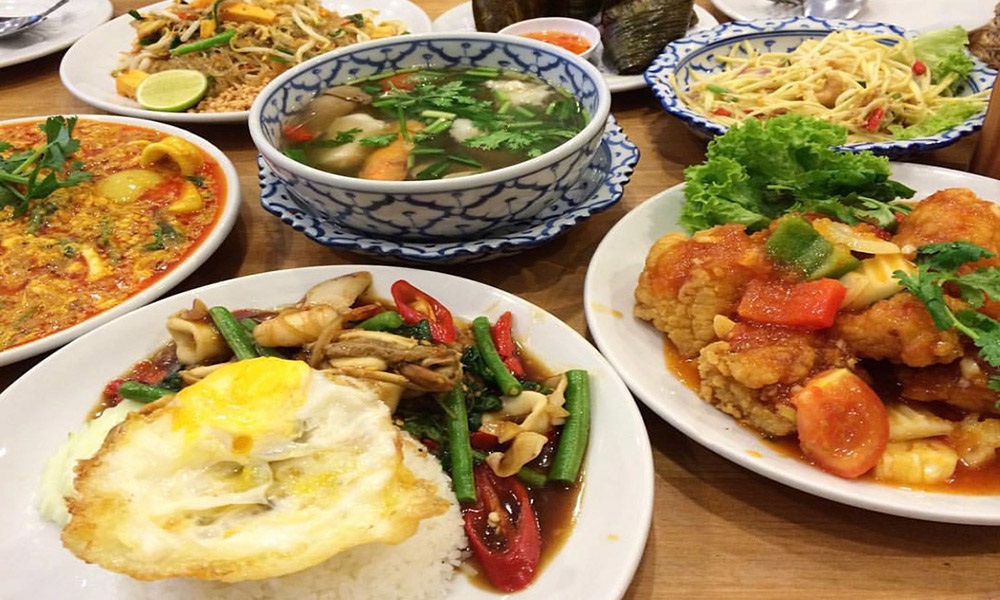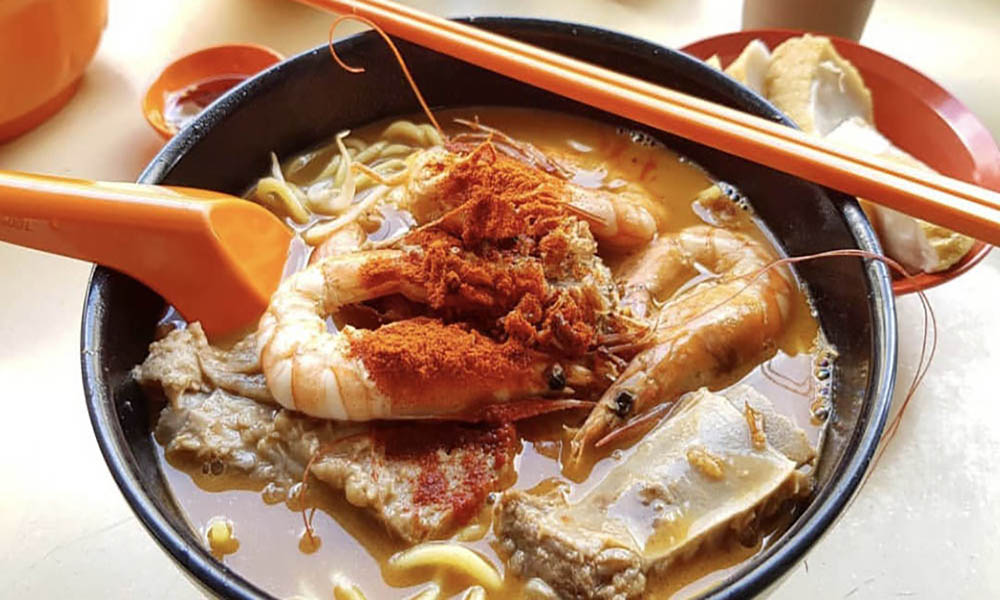In August 2018, a UN human rights panel reported that around two million Uyghurs and Muslim minorities have been forced into political indoctrination camps in Xinjiang Uyghur Autonomous Region, as part of a brutal crackdown. In this series, The Epoch Times delves into the persecution of the Uyghurs in China as they try to survive amid increasing surveillance and rights violations.
By Jocelyn Neo
Experiences of Foreigners Travelling in Xinjiang
The locals are subjected to tight security checks. Does the same apply to foreigners as well?
When reporters from The Wall Street Journal visited Xinjiang, the local police were quick to identify them due to their out-of-town car number plates.
After being told by the officials to leave a nearby town, the reporters were on the road when a police car suddenly appeared out from nowhere.
“It raced past, then skidded to a diagonal stop, kicking up a cloud of dust and blocking the reporters’ car,” the reporters recalled. “An SUV pulled up behind. A half-dozen police ordered the reporters out of the car and demanded their passports.”
“We check every car that’s not from Xinjiang,” one officer told them. They were later escorted to the highway by the police.
And on the last day of their stay, “an unmarked car trailed them on a 5 a.m. drive to the Urumqi airport”.
However, boarding the plane doesn’t signify the end of the surveillance.
“During their China Southern Airlines flight to Beijing, a flight attendant appeared to train a police-style body camera attached to his belt on the reporters,” the reporters recounted. “Later, as passengers were disembarking, the attendant denied filming them, saying it was common for airline crew to wear the cameras as a security measure.
During their China Southern Airlines flight to Beijing, a flight attendant appeared to train a police-style body camera attached to his belt on the reporters
“China Southern says the crew member was an air marshal, charged with safety on board.”
A journalist from Los Angeles Times also experienced similar tight security checks: “I and my assistant, our driver and guide suddenly found ourselves accompanied by two extremely persistent Xinjiang security officers who trailed us for hours and whose intimidating presence ensured that no one would talk openly to us.”
“At my hotel in Kashgar, I was questioned and photographed by police,” Julie Makinen recalled. “In Yafuquan, where I stopped to observe a village market and wasn’t interviewing anyone, officers nonetheless approached our van within 20 minutes, demanded my passport, photographed it and told us to leave the area.”
When the group headed to Yarkand, the capital of an Uyghur kingdom in the early 1500s to late 1600s, they saw two young men, one Han and one Uyghur, dressed in black following them into the restaurant.
Later, when Makinen and her group drove to the city’s cemetery and mosque, the men continued to follow them, and even stood an arm’s length away to listen to her tour guide.
Seeing this, she suggested that the officers pay the tour guide since they had been listening in. But she was met with blank faces. Makinen tried asking them questions, but was again met with silence.
Finally, after the men continued to follow them to a mall, she asked, “Do you give all foreign visitors such a personal welcome?”
One replied in English, “I’m here for your safety.”
“Oh, is this town very dangerous?” Makinen asked again. “Did something bad happen here? I see lots of government signs about terrorism.”
“Society is difficult,” the man said. “This is a small town and something could happen suddenly.”
The officers even waited outside the fitting room when she went to a clothing shop to try on a dress.
After the group returned to the hotel, Makinen and her assistant slipped out from the back door an hour later to avoid the officers still lingering at the lobby.
While these journalists were closely monitored for their movements, one graduate of Yale College experienced first-hand a slightly different treatment because of her facial features—she looks like an Uyghur due to her being half Caucasian and half Chinese.
In 2015, Tao Tao Holmes, an American, was in a university in Shihezi, a small city that is a two-hour drive from Urumqi, to teach graduate and undergraduate courses through the Princeton in Asia Fellowship.
Holmes wrote on Huffington Post how she sometimes caught shopkeepers in Xinjiang telling each other they had spotted an Uyghur. In Shihezi, her ethnicity was always questioned by cab drivers.
When Holmes walked into Han restaurants, the customers would turn silent and eye her warily. It was until she announced in Chinese that she is an American, that “the tension in the air would disperse”, with “smiles lighting up guests’ faces”.
Then, someone would tell her, “We thought you were Uyghur” and other customers would nod their heads in agreement.
There is, however, one incident that Holmes will never forget—being treated roughly at an Urumqi bus station.
Holmes and two American teachers were waiting in line to get inside the station and buy their tickets back to Shihezi when one male policeman barked at her to get in line.
“I did the best I could, pushed up, penguin-like, against the people in front of me,” she recalled.
Suddenly, the policeman came over and “shoved [her] in the chest, sending [her] backwards”.
He told Holmes to get in line again and she “continued to do [her] best to merge with the crowd”.
But “a moment later, the man stepped forward and shoved [her] in the chest—again”.
Holmes couldn’t contain her anger and “an uncontrollable eruption of English expletives burst forth, showering over him”.
At Holmes’ outburst, the policeman was surprised.
“I realised later, that I don’t think he expected me to speak English,” she recalled. “I think he felt entitled to treat me like livestock because he assumed I was Uyghur.”
The policeman later backed off at the request of one female officer, but the incident has left Holmes stunned.
“I was stiff with disbelief that a figure of authority had just indulged in using physical force, choosing to single me out,” she wrote. “Patiently standing among more than 15 others, I had been viewed a fair target.
“It was the moment in Xinjiang that I felt the most Uyghur.”
Escaping Overseas
Unable to bear the unfair treatment and tight security checks, some Uyghurs escaped abroad. However, staying overseas does not mean complete freedom.
A report said that Uyghurs are being spied on by the Chinese regime’s intelligence services even after they have escaped China and sought asylum overseas, according to an Epoch Times article published on February 28, 2018.
A report said that Uyghurs are being spied on by the Chinese regime’s intelligence services even after they have escaped China and sought asylum overseas.
Titled ‘The Fifth Poison: the Harassment of Uyghurs Overseas’, the report was originally published in November 2017 and presented on February 26, 2018 at an event discussing Uyghur human rights issues at the US Congress’ Cannon House Office Building.
Nicole Morgret, a UHRP project coordinator who introduced the report, said that the Ministry of State Security, the Chinese regime’s spy agencies, and in some cases its Ministry of Foreign Affairs have been conducting activities against exiled Uyghurs across various parts of the world ranging from Egypt and Turkey to Western countries like Germany, Sweden, Canada, and Australia.
“The Chinese government’s effort to spy on dissidents should not be dismissed as irrelevant to national security,” the report stated. “This kind of monitoring is intended not only to gather information on Uyghurs and other dissident groups, but also to intimidate them into not exercising their rights to assembly and speech even in Western countries.”

According to Morgret, the Chinese regime’s spying on Uyghurs in the United States has been more under the table compared to its efforts in other countries. However, there were still documented cases of Chinese intelligence officials making remote threats against Uyghurs on US soil, notably in May 2017 when Uyghur students across many countries including the United States received “orders” to go back to China under the threat that their parents and siblings would be persecuted if they refused to comply.
“The harassment of Uyghurs overseas is a longstanding tactic of the Chinese government to attempt to discourage any political activity among them and to monitor those who are or may be inclined to become politically active,” the report stated.
During a congressional hearing in February 2018, FBI Director Christopher Wray said that the Chinese regime manipulated non-traditional spies in academia—such as professors, scientists, and students—to collect intelligence. While Wray did not specify whether such intelligence included the spying of Chinese dissidents like the Uyghurs, he stressed that the regime’s efforts stretched “across basically every discipline”.
The same month, RFA reported how one Uyghur student studying in Virginia was threatened by his Han Chinese classmates.
When the student was asked to introduce himself to the class, he said that he was from East Turkestan, a name that was preferred by many ethnic Uyghurs.
“Everyone looked at me in bewilderment,” the student told RFA. “Then, suddenly, several Chinese students stood up and angrily said in front of everyone, ‘Where is East Turkestan? You are speaking with the voice of a separatist!’”
The young man also told the Chinese students to read up on the history of the region.
“This land was an independent country before the Chinese invasion, and it is now under the occupation of the Chinese Communist government since they took it over in 1949,” he told the class.
Hearing his speech, the Chinese students shouted, “We cannot allow you to speak against China in our class! And as you are a separatist, we are going to report you to our embassy!”
“If you report me to the Chinese authorities, I will report you to the American government. And we will see who wins,” he retorted.
According to Uyghur American Association President Ilshat Hassan, he learned that the students’ instructor had told the class that the Uyghur student had the right to report the Chinese students to the US authorities if they were to report him to their embassy.
“And if he turns you in to the FBI, you will be subject to investigation,” the teacher told them.
“The Chinese students became worried upon hearing this, and they begged him not to take the matter any further, and that was how it was settled,” Ilshat said.
Epilogue
Since 1949, 60 to 80 million innocent Chinese people have been killed under CCP rule, according to the award-winning ‘Nine Commentaries on the Communist Party’ published by the Epoch Times in November 2004.
While the Uyghurs have been experiencing brutal suppression from the Party for decades, they are not the only minority and religious group that have been treated unfairly.
The Tibetans, Christians, and Falun Gong practitioners are also facing suppression and persecution. Thus, it is important for the world to understand what China’s minorities and religious groups have been subjected to and lend a helping hand wherever possible.
















